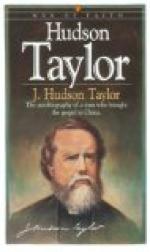Anonymous.
* * *
From this time on to the Revolution of 1776 there is one continual struggle between the Royal Governors and the General Assembly. The Governor General had the power of dissolving the Assembly, but the Assembly had the power of granting money. British troops were quartered in New York which increased the irritation. The conquest of Canada left a heavy burden upon Great Britain, a part of which their Parliament attempted to shift to the shoulders of the Colonies.
A general Congress of the Colonies, held in New York in 1765, protested against the Stamp Act and other oppressive ordinances and they were in part repealed.
=A Page of Patriotism.=—During the long political agitation New York, the most English of the Colonies in her manners and feelings, was in close harmony with the Whig leaders of England. She firmly adhered to the principle of the sovereignty of the people which she had inscribed on her ancient “Charter of Liberties.” Although largely dependent upon commerce she was the first to recommend a non-importation of English merchandise as a measure of retaliation against Britain, and she was the first also to invite a general congress of all the Colonies. On the breaking out of hostilities New York immediately joined the patriot cause. The English authority was overthrown and the government passed to a provincial congress.
* * *
The union of lakes—the union
of lands—
The union of States none can
sever—
The union of hearts—the union
of hands—
And the Flag of our Union
forever.
George P. Morris.
* * *
=New York Sons of Liberty.=—In 1767, in the eighth year of the reign of George III. there was issued a document in straightforward Saxon, and Sir Henry Moore, Governor-in-Chief over the Province of New York, offered fifty pounds to discover the author or authors. The paper read as follows: “Whereas, a glorious stand for Liberty did appear in the Resentment shown to a Set of Miscreants under the Name of Stamp Masters, in the year 1765, and it is now feared that a set of Gentry called Commissioners (I do not mean those lately arrived at Boston), whose odious Business is of a similar nature, may soon make their appearance amongst us in order to execute their detestable office: It is therefore hoped that every votary of that celestial Goddess Liberty, will hold themselves in readiness to give them a proper welcome. Rouse, my Countrymen, Rouse! (Signed) Pro Patria.”
In December, 1769, a stirring address “To the Betrayed Inhabitants of the City and County of New York,” signed by a Son of Liberty, was also published, asking the people to do their duty in matters pending between them and Britain. “Imitate,” the writer said, “the noble examples of the friends of Liberty in England; who, rather than be enslaved, contend for their rights with king, lords and commons; and will you suffer your liberties to be torn from you by your Representatives? tell it not in Boston; publish it not in the streets of Charles-town. You have means yet left to preserve a unanimity with the brave Bostonians and Carolinians; and to prevent the accomplishment of the designs of tyrants.”




